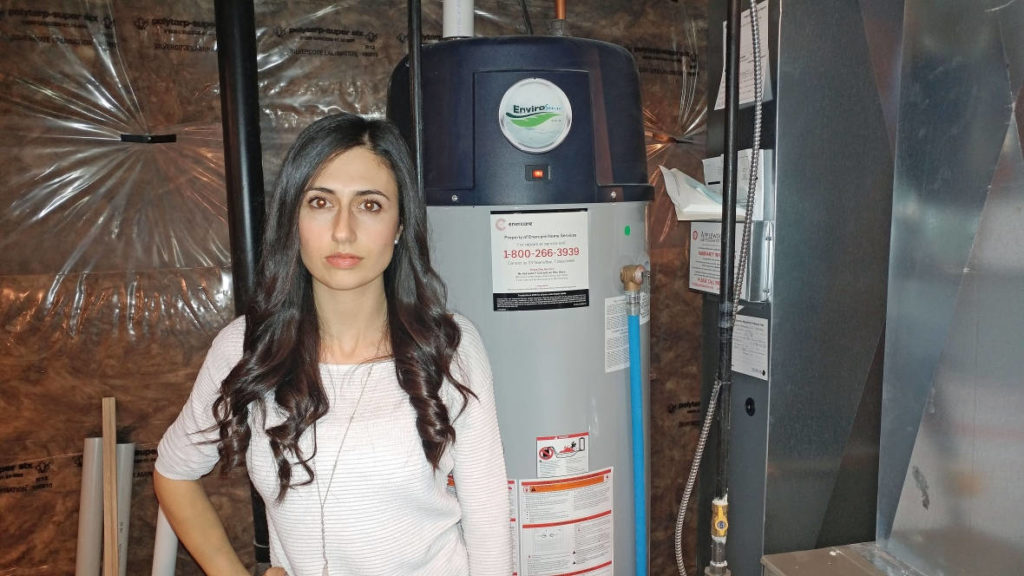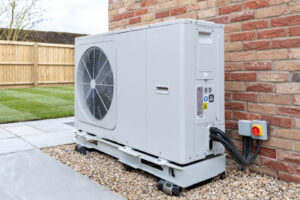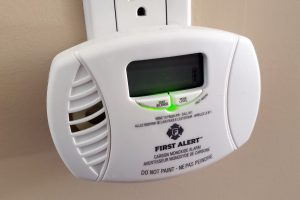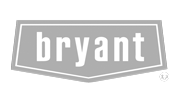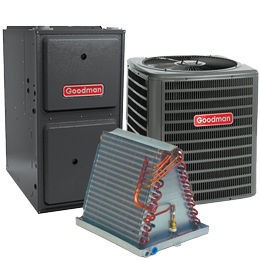See full article on the CBC website.
New Ontario law fails to address buyers of new builds who are locked into equipment contracts
Nadia Mendola didn’t think she’d be signing her life away for a water heater when she bought her brand new home in Waterdown, Ont., in 2016.
She’s stuck with a 14-year rental contract with Enercare, paying $56.43 per month for the water heater. Now she can’t get out of it unless she buys the equipment outright at $3,600 — three times the cost of an average water heater.
“If you can buy it from Home Depot for $1,000, I just don’t understand why you would go renting it.”
Enercare said the model in Mendola’s home is much more efficient than the model that could be purchased at a retailer for that amount, and adds that the $1,000 figure doesn’t include the cost of installation, which can add an additional $400 to the price.
As a first-time homebuyer, Mendola admits she didn’t know how much a water heater should cost. “I was paying it for six months and my dad saw one of my bills and thought it was high.”
So she called Enercare in August 2017, and was told that her expensive bills were due to having a high-end, energy-efficient tank. That’s also when she learned she’s locked in for 14 or possibly 18 years.
Enercare also indicates that the higher cost of renting instead of buying includes repairs and maintenance. Mendola feels she had no choice. “It’s just an appliance … Your washer and dryer are expensive items but you don’t rent them. It just seems like a big scam to me.”
Buyer seeks documentation
Under Ontario’s Consumer Protection Act, 2002, unsolicited door-to-door marketing and contracting for water heaters and HVAC equipment are banned. As of March 1 this year, suppliers are required by law to provide a cover page with contracts for such products and services.
But the law fails to address the issue at hand for buyers of new builds, like Mendola. She asked her builder for documentation about her contract, but she got a response saying that they didn’t have any. Her home purchase agreement does state that a buyer executes a lease/rental agreement for the hot water tank, but her lawyer argues it doesn’t confirm that she is taking it for up to 18 years.
Nadia Mendola didn’t think she’d be signing her life away for a water heater when she bought her brand new home in Waterdown, Ont., in 2016. (Nadia Mendola)
Enercare told CBC News that it expects “the purchaser or the purchaser’s lawyer, to have made the necessary inquiries in respect of the rental agreement, prior to agreeing to assume it on closing” and that the wording in Mendola’s contract “does not conform to Enercare’s standard agreements with home builders.”
Samuel On of Toronto was provided documentation during an inspection of his new town home in March 2017 but was told by the builder that he had to sign Enercare rental contracts to accept the occupancy.
Enercare says that in their agreements with home builders, “the home builder is required to provide all the necessary rental details to the purchaser and agrees to do so as part of their legal obligations under their agreement with Enercare.”
On says, “I was told to sign because that’s just the vendor [the builder] chose.”
Enercare adds, “A homeowner is not required to rent their equipment and can purchase it outright from the builder or otherwise negotiate with the builder.” On — who had Enercare rental contracts for his hot water tank, air handler and air conditioning unit — was quoted $5,000 for each unit if he were to buy them outright. “I did the math. It just wasn’t adding up,” he says.
“There’s no way all this costs $15,000.”
He ended up buying out all the equipment at $9,000 a year after he bought his home. In a response to a question from CBC News, Enercare recommends new homebuyers “engage a real estate lawyer to review their purchase agreement and explain any contractual obligations.”
Mendola is now thinking of engaging a lawyer with neighbours who have similar concerns.
Landlord chooses to rent the equipment
For Men-Chong Luk, frustration with Enercare started in November when her tenants couldn’t get hot water due to a broken part of the hot water tank. “I was so angry,” she recalls of her playing phone tag with Enercare’s customer service.
As a landlord, she chose to rent the equipment to get repairs and maintenance. “If there was a problem, I don’t want to have to go in and deal with it,” she says.
Ontario bans unsolicited door-to-door marketing and contracting for water heaters and HVAC equipment. It requires suppliers of water heaters to provide a cover page with contracts for their products and services. (iStock)
Luk pays $30.99 plus tax per month for her hot water tank rental. Her contract is 14 years, which means she’ll have paid $5,000 to have that tank for the life of the contract. If she were to purchase a heater today, she’d likely pay about $1,500, she estimates. But she is OK with that premium because she thought it would buy her peace of mind in knowing that if the unit ever broke, the company would fix it quickly.
“Basically, I’m paying $3,500 for a service program, so I’m expecting that if it breaks down, you will come and fix it and if you can’t fix it, then you’ll replace it for me.” After numerous calls to Enercare, she learned that parts are handled by a separate division.
“Customer service can order the part but they don’t track it. They put the onus on the customer to check when the part arrives,” explains Luk. “Then when it arrives, you have to call Enercare back to install the part.”
Enercare confirms it is “not a manufacturer or parts supplier and is required to work with vendors to source the necessary parts from the manufacturer or manufacturer-approved suppliers. … As such, it has no control over the timing of delivery of parts.”
Although only a pump was broken, it was decided that the entire system would need to be replaced.
From the time Luk first contacted the company, it took four days for Enercare to fix the problem and for her tenants to get hot water again. “You want to pull your hair out,” she said. “Once you’re in the contract, you’re stuck. There’s no one else out there.”
Rent rebates
She ended up giving her two tenants a rent rebates of $100 each for the inconvenience. Enercare credited her account for three months as goodwill but to Luk, that’s not enough. “Who’s paying me for the hours and hours of frustration?” she asks.
Mendola adds, “When you call, they always tell you that managers are not in and that they’ll call you back.”
Enercare claims that “whenever the company’s office of the president receives customer concerns, it readily investigates and works with those customers to resolve their concerns in a timely manner.” Mendola’s case has been forwarded to that office.
She hopes to get out of her rental arrangement.
In Luk’s case, her story ended with another twist. Weeks after the company came to fix her rented hot water tank, a package arrived on her doorstep. It was the replacement part. “I have to keep this because in case it breaks again,” she says. “It’s the funny, sad part.”


